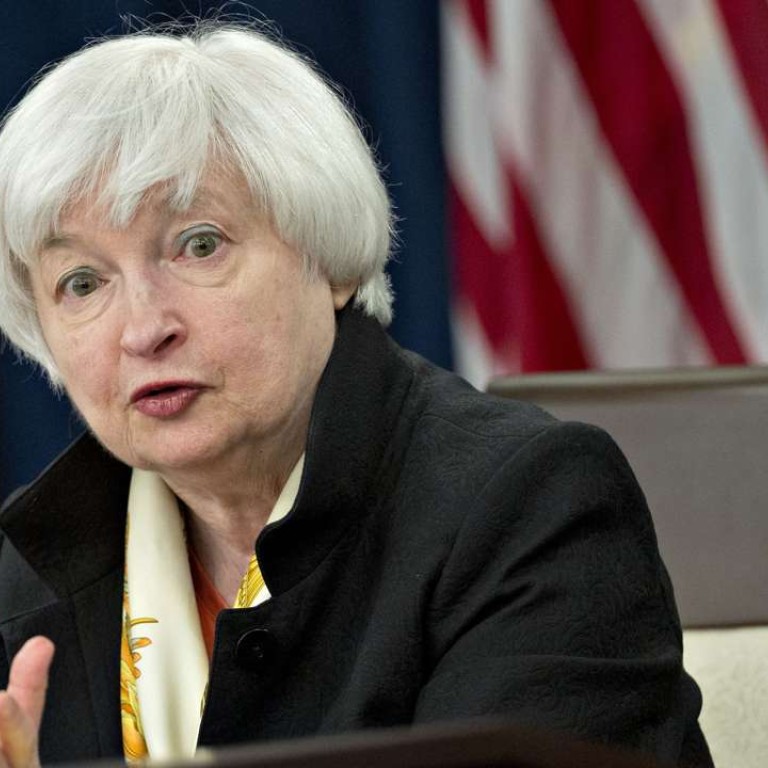
US Fed’s decision on interest rates affects us all
Hong Kong is especially vulnerable to decisions taken in Washington and will be hoping for the accommodative policy to continue for a while longer
The response of capital markets to Janet Yellen’s much-anticipated speech at Jackson Hole last week has been tepid. While the US Federal Reserve chief’s message seemed to imply a definite rate hike sometime this year, most traders and economists believe it will happen in December rather than this month. And even if the cycle of interest rate rises does start this winter, it is generally expected to be of a short duration.
If so, emerging markets around the world and economies in East Asia including Hong Kong and the mainland may breathe a sigh of relief. These economies have fared relatively well this year compared with those of the more advanced markets, that is, with the exception of the US. Their exports and stock markets are up, and Hong Kong is no exception.
The latest figures show our GDP in the second quarter expanded 1.7 per cent year on year, compared to a consensus expectation of just 0.9 per cent. The Census and Statistics Department mostly attributes the better-than-expected figures to a moderate growth in exports and paints a relatively optimistic picture of employment and wages.
One paradoxical view on this recent favourable condition for much of the rest of the world besides the advanced economies is that it is mostly thanks to the largesse, or dovish stances, of the world’s major central banks, especially the US Fed.
This theory may or may not be true for the rest of the world, but it definitely holds for Hong Kong. Thanks to our currency’s peg to the US dollar, many major sectors of our economy from exports to the property market are highly sensitive to even minor changes in the interest rate environment.
Yellen observed that the conditions for a rate hike now were stronger than a few months ago. The US economy is picking up in the second half of the year, consumer confidence is relatively high and the shock of Brexit – Britain’s decision to leave the European Union – has been minimal. Some economists are expecting strong US employment figures for August when they are released tonight. But having learned from the Great Depression and the Japanese experience of the last quarter of a century, many American economists and policymakers are more fearful of tightening too early than they are wishful for a return to interest rate normalisation. This battle is being fought between two rival camps within the US Fed. Its outcome has major consequences for the rest of the world. But with the risk of inflation still low, the US Fed has room to continue an accommodative policy that will give the world economy to catch up.

